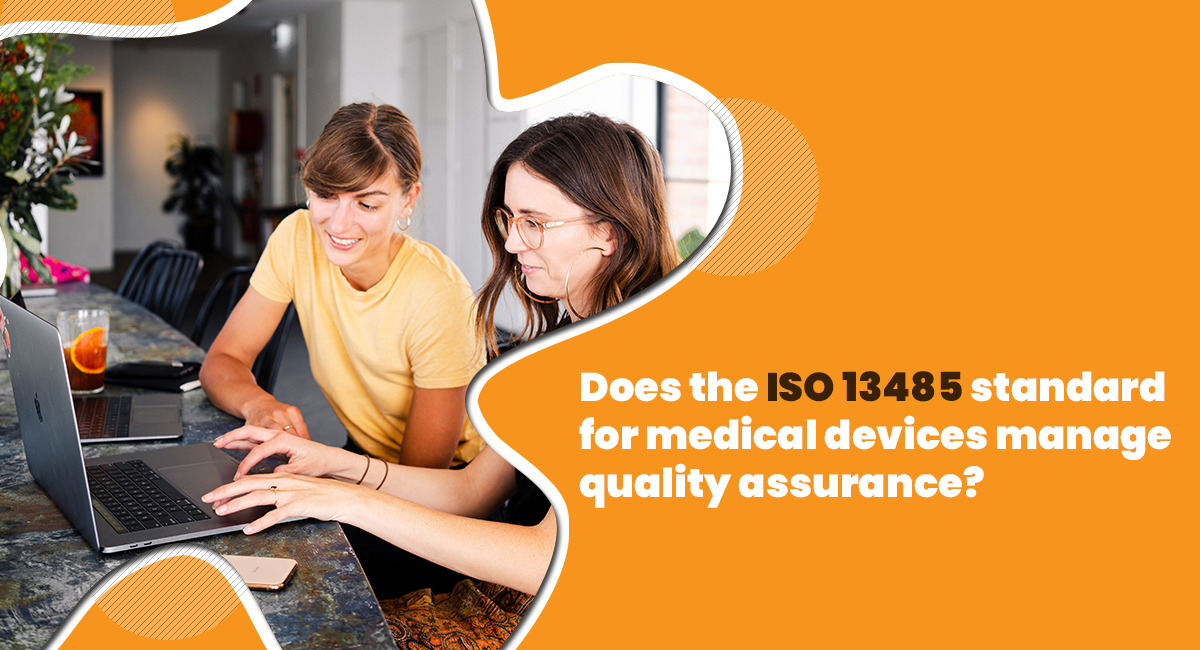Does the ISO 13485 Standard for Medical Devices Manage Quality Assurance?
The answer is 100% yes. The ISO 13485 is a global quality management standard for the medical device manufacturing and distribution industry. The standard sets policies, processes, and fundamental requirements for increasing the quality of the devices. To obtain this universal mission and faster recovery of the patients, the ISO 13485 certification enables companies to understand quality assurance protocols. The phrase ISO 13485 standard for medical devices is therefore synonymous with quality assurance and control.
The competitive industry of medical device production and supply forces companies to obtain a certification that will help the stakeholders manage the requirements of the customers and fulfil them from time to time. Customers will rely on brands that stick to their promises, maintain quality guidelines, and supply products faster than other competitors. Especially for small and medium-sized companies, maintaining excellence is mandatory. Unfortunately, stakeholders often ignore the quality protocols set by the ISO 13485. Moreover, one of the frequent confusions is whether the standard is the ultimate template for managing quality or not.
In the following blog, the effectiveness of the standard in maintaining quality assurance for the medical device industry has been discussed. Why the ISO 13485 is the ultimate choice for accomplishing customer satisfaction? Come let’s find it out.
Why the ISO 13485 standard for medical devices is the best option for quality assurance?
• It sets the regulatory boundaries for quality management. Therefore, the standard helps companies to comprehend the quality clauses, which are directly linked with the requirements. If the government intervenes in organizational procedures for quality management and detects statutory flaws, then companies pay penalties and lose their brand image. It can be said that the ISO 13485 offers strict guidance for conducting the best practices to retain brand reputation and maintain customer loyalty and profit margin.
• It is necessary to maintain sustainable with all the market pressure. For that, market expansion and new investments are required. If the profit margin is unstable, it means the company is not in the good book of the target market. For the medical device industry, quality is the key to holding customers and meeting the yearly profit goal. Therefore, it is easy to deduce that the ISO 13485 is necessary for the revenue margin.
• Every customer nowadays searches for companies that help to maintain environmental sustainability. The ISO 13485 helps the stakeholders to understand the importance of resource management and resource usage too. The guidelines help to increase awareness among the stakeholders. One can say that the ISO 13485 offers holistic support to keep a business blooming in the most sustainable way possible.
Five Key Aspects of The ISO 13485 Standard for Medical Devices
1.Quality Management System (QMS) Requirements:
• The ISO 13485 outlines the requirements for establishing, implementing, and maintaining a quality management system specific to the medical device industry.
• The standard is based on the process approach to quality management.
2.Regulatory Compliance:
• Compliance with regulatory requirements is a central focus of ISO 13485. Organizations must demonstrate conformity to applicable regulatory requirements in the markets where they operate.
3.Risk Management:
• The ISO 13485 emphasizes the importance of risk management in the design and development of medical devices.
• Organizations are required to establish processes for risk management to identify, assess, and mitigate risks associated with their products.
4.Management Responsibility:
• The ISO 13485 places a strong emphasis on leadership and management commitment to the QMS.
• Top management is responsible for ensuring that the QMS is established, implemented, and maintained effectively.
5.Measurement, and Improvement:
• The ISO 13485 sets the requirements for monitoring and measuring processes, as well as analyzing and improving the QMS.
• Continuous improvement is a fundamental principle of the universal quality management protocol, and organizations are expected to use data and feedback to enhance their processes.
To find professional support for attaining the requirements of the ISO business management system standards and the internal audit, contact us at Compliancehelp Consulting LLC. We are the premier site for achieving any ISO certification within the US. Our bespoke solutions for ISO and other global certifications are ready to make the seemingly exhausting process of accreditation, comfortable and time bound. From basic consultation to audit and analysis, we will cover everything. Get help to clear your concepts regarding the clauses of any management system standard you require.

